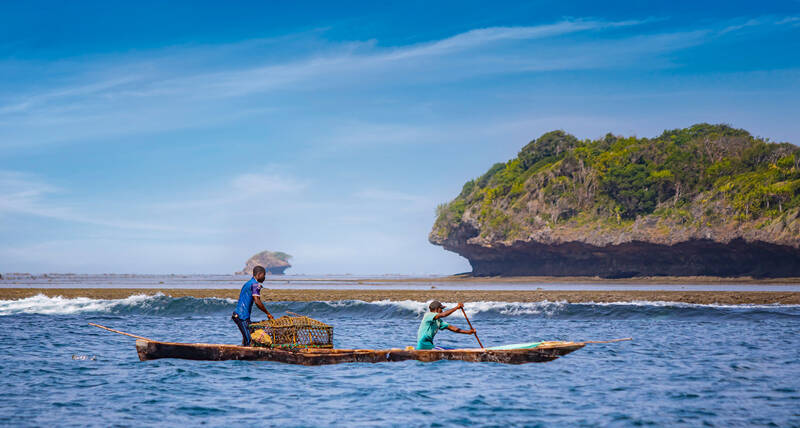
Go Blue on value chains and JKP Secretariat strengthening (EUR 4,750,000) implemented by AICS in partnership with CIHEAM Bari
Main Activities
-
- Training Activities in 9 BMUs and Design of a Code of Conduct. Training activities regards fish quality, environmental preservation and Medium and Small Enterprises enhancement. The Code of Conduct will be developed through a participatory approach and will be a key tool to improve target BMU management and functioning;
- Provision of fishing equipment, productive resources input and cold chain improvements. Cold chain improvements will be provided at different points of the value chain to ensure identified gaps are properly addressed with a comprehensive approach;
- Provision of small scale fisheries infrastructure in Lamu and Mombasa counties;
- Introduction of pilot labelling schemes to certify well-managed marine capture fisheries. The system will be based on traceability and will entitle a fishery product to bear a distinctive logo or statement which certifies that the fish has been harvested in compliance with set requirement and standards;
- Awareness raising campaigns will be organized through local radio and TV stations to promote the consumption of fish as a source of essential nutrients and inform about the importance of fish consumption for health and growth;
- Capacity development on agronomic techniques to Kwale and Kilifi Counties extension services, in order for the Counties’ governments to transfer these skills to smallholder farmers communities and to provide supervision support along the whole crop growth cycle and cassava value chain;
- Establishment of cassava bulking plots, provision of processing units and equipment to increase the production of processed cassava products;
- Organization of Go Blue programme partner and stakeholder workshops to foster knowledge sharing among partners and stakeholders, share best practices and lessons learnt and enhance Go Blue Programme’s sustainability;
- Specialistic support to the JKP Secretariat for integrated local development ensuring specialistic consultancies and assistance to structure a credible institution able to conceptualize and implement tactical development;
- Participatory development of a Coastal Small Scale Fisheries Master Plan to establish objectives, principles and actions that should be applied to ensure sustainability of small-scale fisheries.
Main Results
- Enhanced fisheries co-management and strengthened fisheries value chains for shared prosperity, inclusive growth and job creation;
- Improve capacity of framer groups to operate along the cassava value chain (increase productivity, value addition and marketing, access to better markets);
- Enhanced capacity of the JKP Secretariat to deliver its mandate including formulation of integrated strategies and economic blueprints for sustainable and inclusive growth of the Coastal Region.
Target Groups
9 BMUs along 5 coastal counties, 2 groups of smallholder farmers in Kilifi and Kwale Counties, County Governments, JKP Secretariat
Blue | Component Tourism and Cultural Heritage
Target groups
- Tourism and cultural heritage institutions and private sector operators
- Entrepreneurs
- Young job seekers
- Women
Outcomes Goals
- 100 Long-term new jobs created in Tourism and Cultural Heritage sectors, thereof 50 women
- EUR 550 000.00 of new investments contributing to advance blue economy
Outputs Goals
- 1 regional government policy developed or revised with civil society organization participation through the Action’s support
- 10 JKP coastal bloc integrated governance meetings on drafting and monitoring of the blueprint on Tourism and Cultural Heritage with relevant JKP stakeholders led by the JKP Secretariat
- 6 CSO projects receiving grants and supported through technical mentorship
- At least, 10 JKP regional public, private and CSO sectors projects receiving grants and supported through technical mentorship
- 50 new jobs created, 25 of them for women, in Tourism and Cultural Heritage sectors by operators benefiting from grants
- 140 young unemployed, 70 of them women, trained in social entrepreneurship
- 100 young trained, 50 of them women, that are able to create their own business or find jobs
